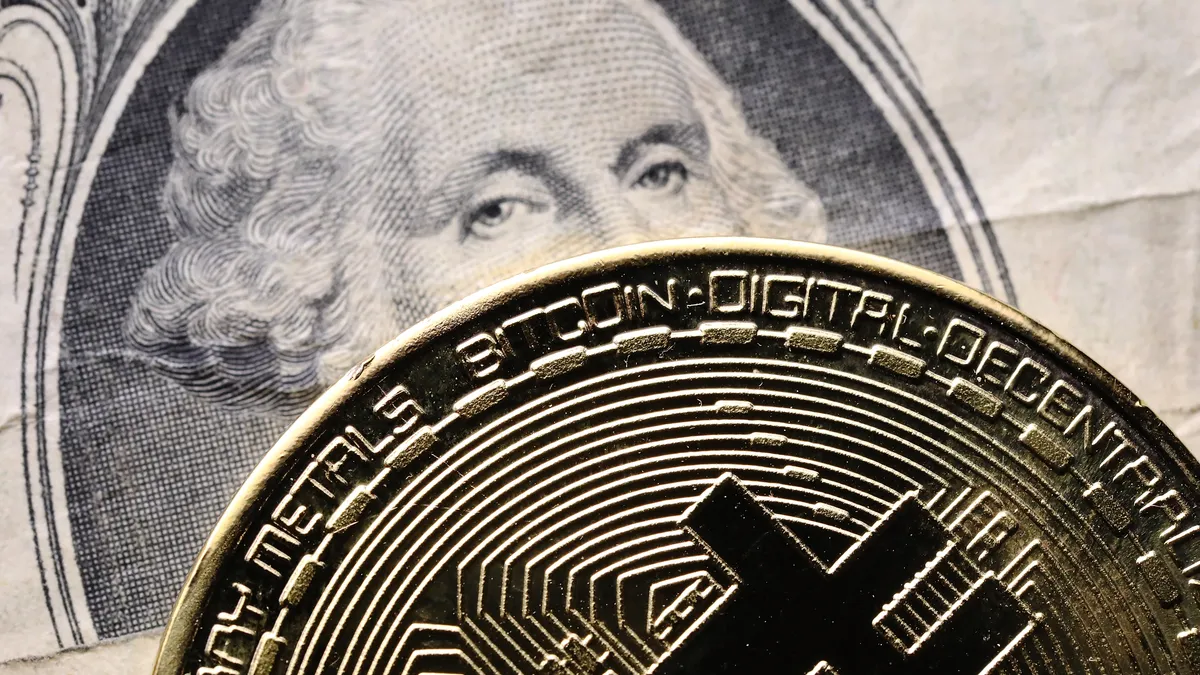Wicket by Paybby, a challenger bank offering services targeted toward Black and Brown communities, plans to launch cryptocurrency investing on its platform this summer, the startup’s founder and CEO said.
"There’s a lot of buzz and excitement around crypto, so we want to make that available to our community," said Hassan Miah.
Paybby, which started as a marketing agent to help the underserved get access to Paycheck Protection Program (PPP) loans, began offering banking services this year after it bought Overland Park, Kansas-based Wicket for an undisclosed amount in January.
The neobank partners with Radius Bank to offer fee-free Federal Deposit Insurance Corp.(FDIC)-insured savings and checking accounts and early access to direct deposits. It also has an automatic savings tool, a feature Miah said he would like to fold into its upcoming crypto investment product.
"We're going to be adding that type of capability — doing it in a way that allows them to fully participate but also includes education," Miah said. "We want to do it in a safe and profitable way for our community."
The notion of crypto offerings has been fielding strong interest from the startup's customers — something Paybby Marketing Director Miranda Tan said initially came as a surprise.
"Our target is mostly unbanked and underbanked. So we were thinking, ‘Why would they do crypto?’ A lot of people want to get a bank account, and they're trying to make ends meet," she said. "But the Black and Brown communities are actually very eager and aggressive in terms of jumping into the whole crypto community."
Paybby is in partnership talks with several crypto exchange firms about adding their services to its app, Tan said.
The neobank is allowing its customers to sign up as beta testers for its crypto investment product. It also plans to distribute digital tokens to beta testers via crypto "airdrops," a popular crypto marketing technique used to drum up interest in a particular token.
"It's a great new investment class, and the people of our community should have access to this investment class just like anybody else," Miah said. "And we tend to ensure that that happens."
Paybby’s expansion into crypto comes as the growing interest in the space is causing financial institutions to decide on which side of the digital-asset fence they want to stand.
HSBC CEO Noel Quinn said Monday the London-based bank has no plans to launch a cryptocurrency trading desk or offer crypto investment products to its customers, citing digital currencies’ volatility and lack of transparency, according to Reuters.
However, Wells Fargo last week became the latest large bank to reveal it was dipping its toe in the digital-asset pool — saying it planned to begin offering its crypto investment platform to wealthy clients in mid-June.
Earlier this month, Citi’s global head of foreign exchange said his bank is weighing offering its clients cryptocurrency trading, custody and financing options — but is proceeding with caution.
Goldman Sachs, meanwhile, announced in March that it would relaunch its crypto trading desk. BNY Mellon said a month earlier it would hold, transfer and issue cryptocurrencies on behalf of its asset-management clients. And JPMorgan Chase last year began extending its banking services to crypto exchanges Coinbase and Gemini.
Among the challenger bank crowd, Current said it plans to use some of its $220 million Series D fundraise to launch cryptocurrency products.
"There is a need and a demand for a company like Current to explain and shepherd people into this new world. There's a bunch of things and a bunch of value happening in cryptocurrencies that is not easily explained," Current CEO Stuart Sopp told Banking Dive last month.
New York City-based Quontic Bank is beta testing a checking account that rewards consumers in Bitcoin.
"[W]e believe that there's a place for Bitcoin in people's portfolios," Quontic CEO Steven Schnall told Banking Dive last month. "We did a lot of surveys and found that there was a huge percentage of the population that was interested in Bitcoin but didn't necessarily want to take the risk to acquire it themselves, or thought it was too volatile or didn't know how to go about getting it."














